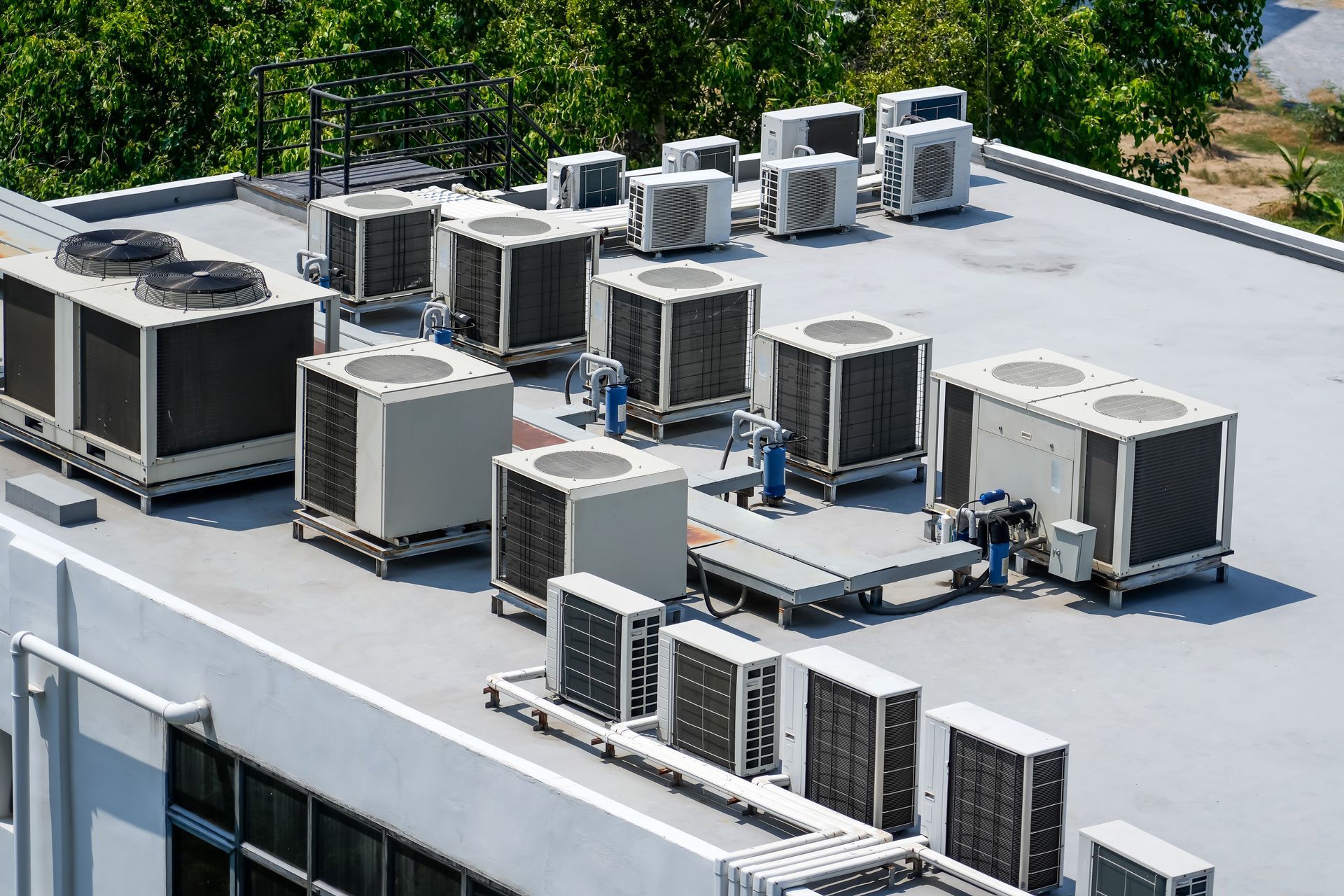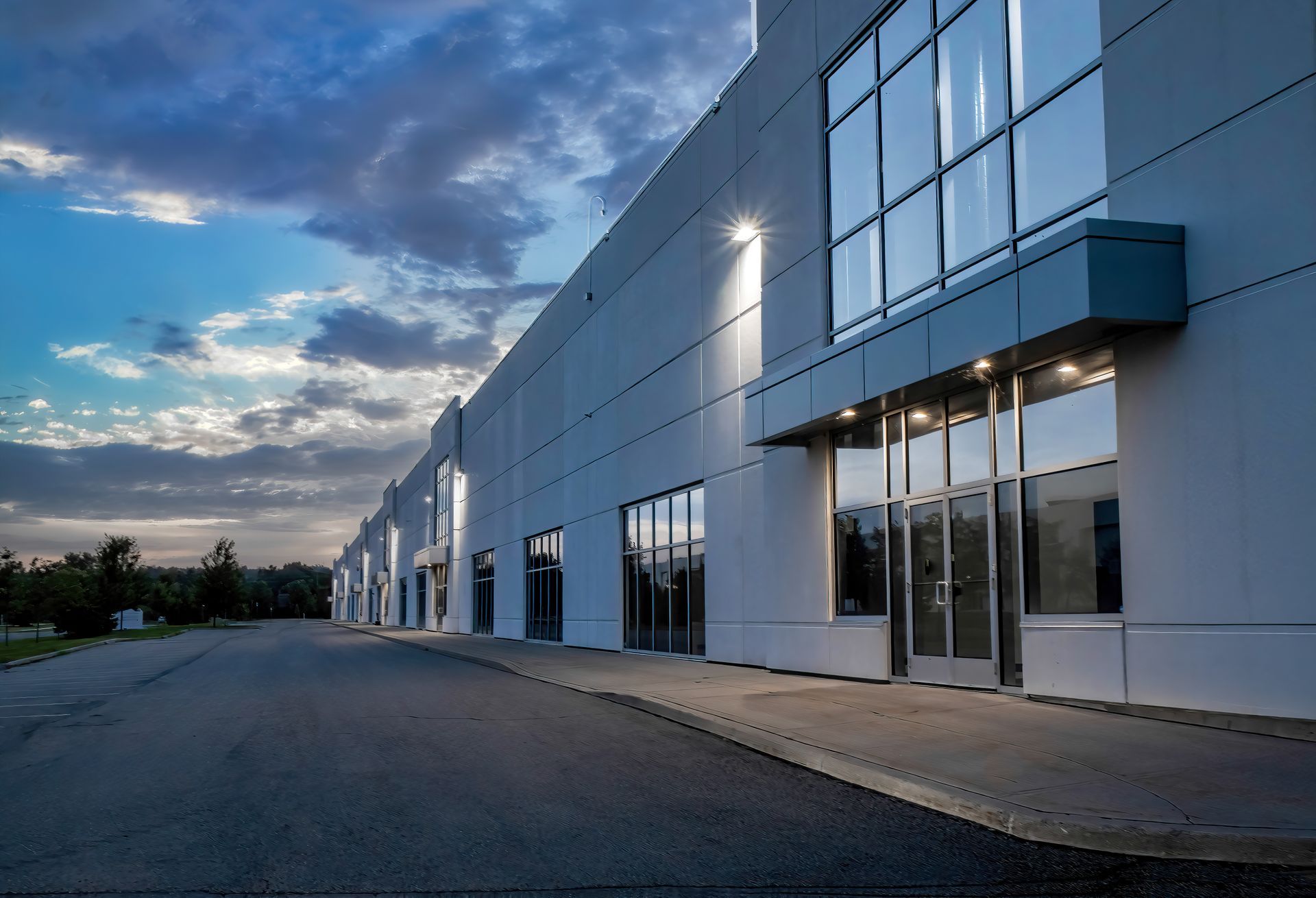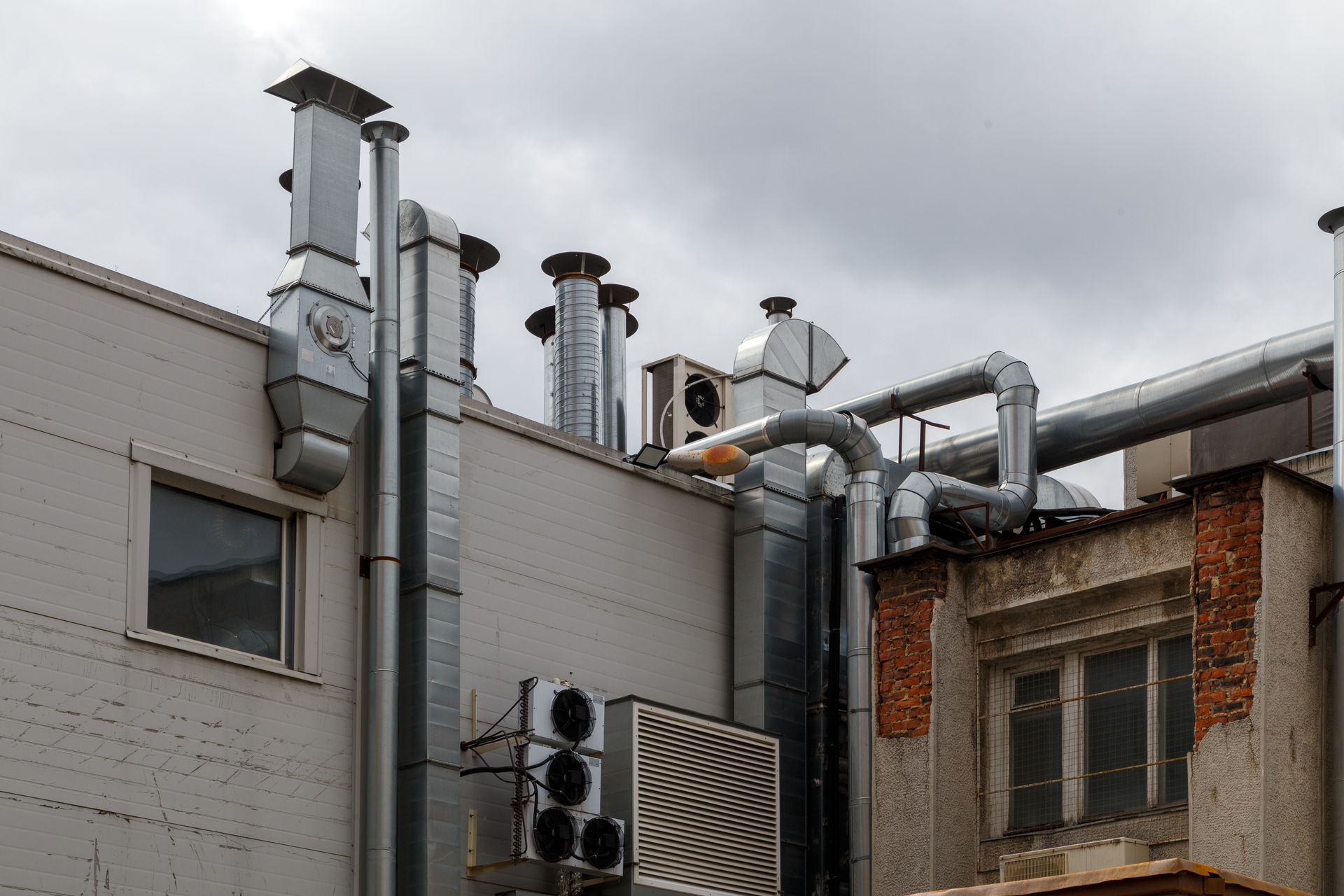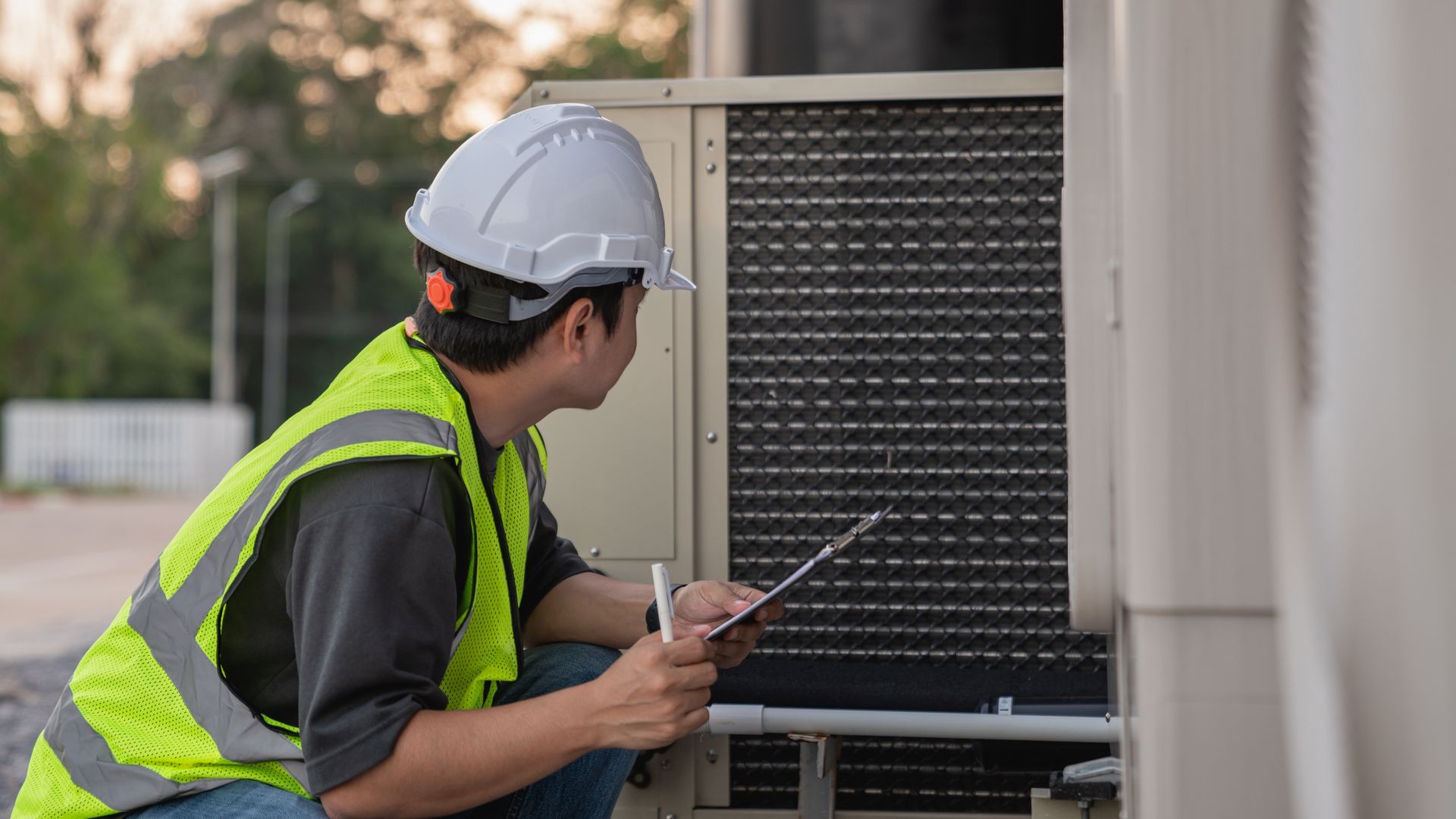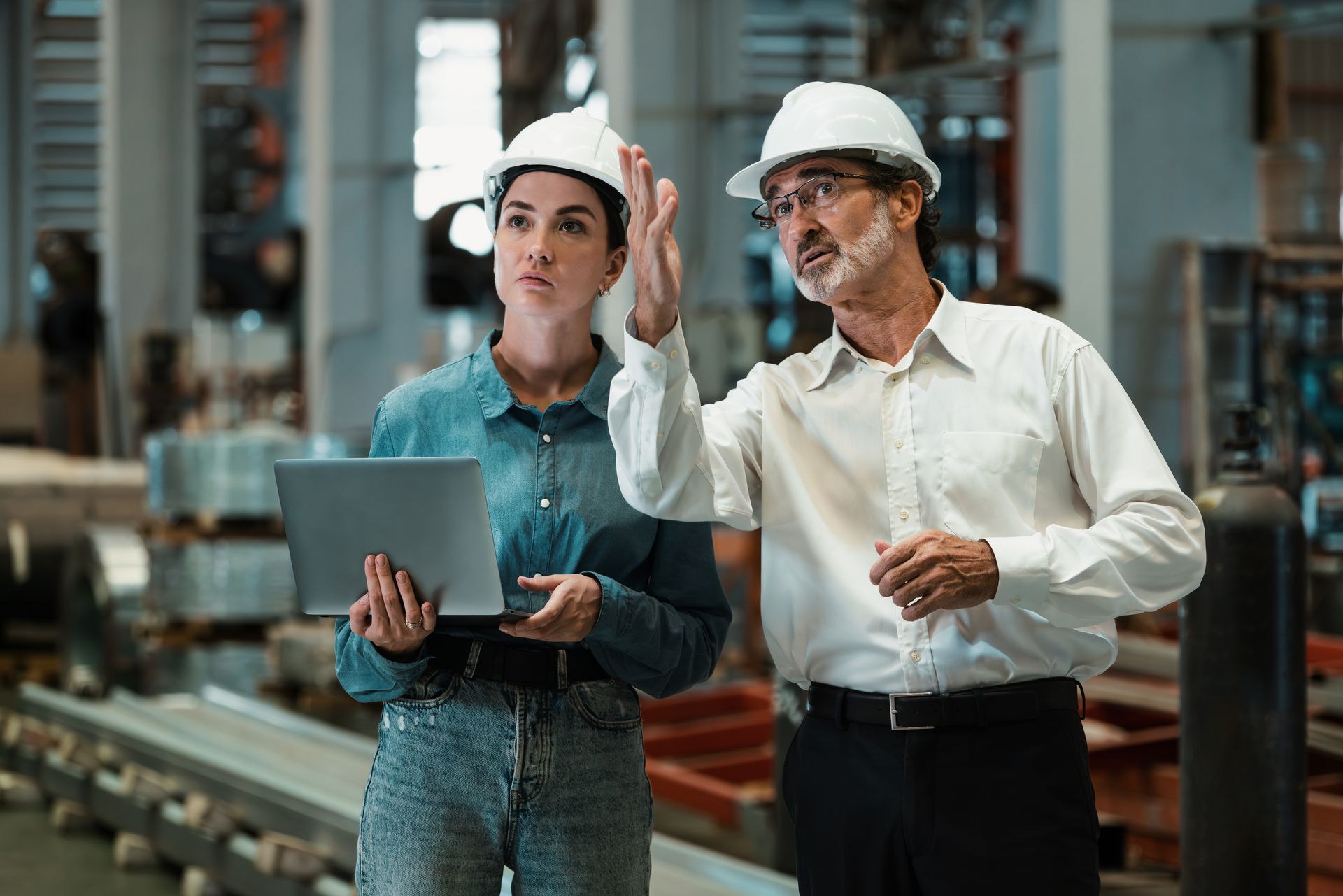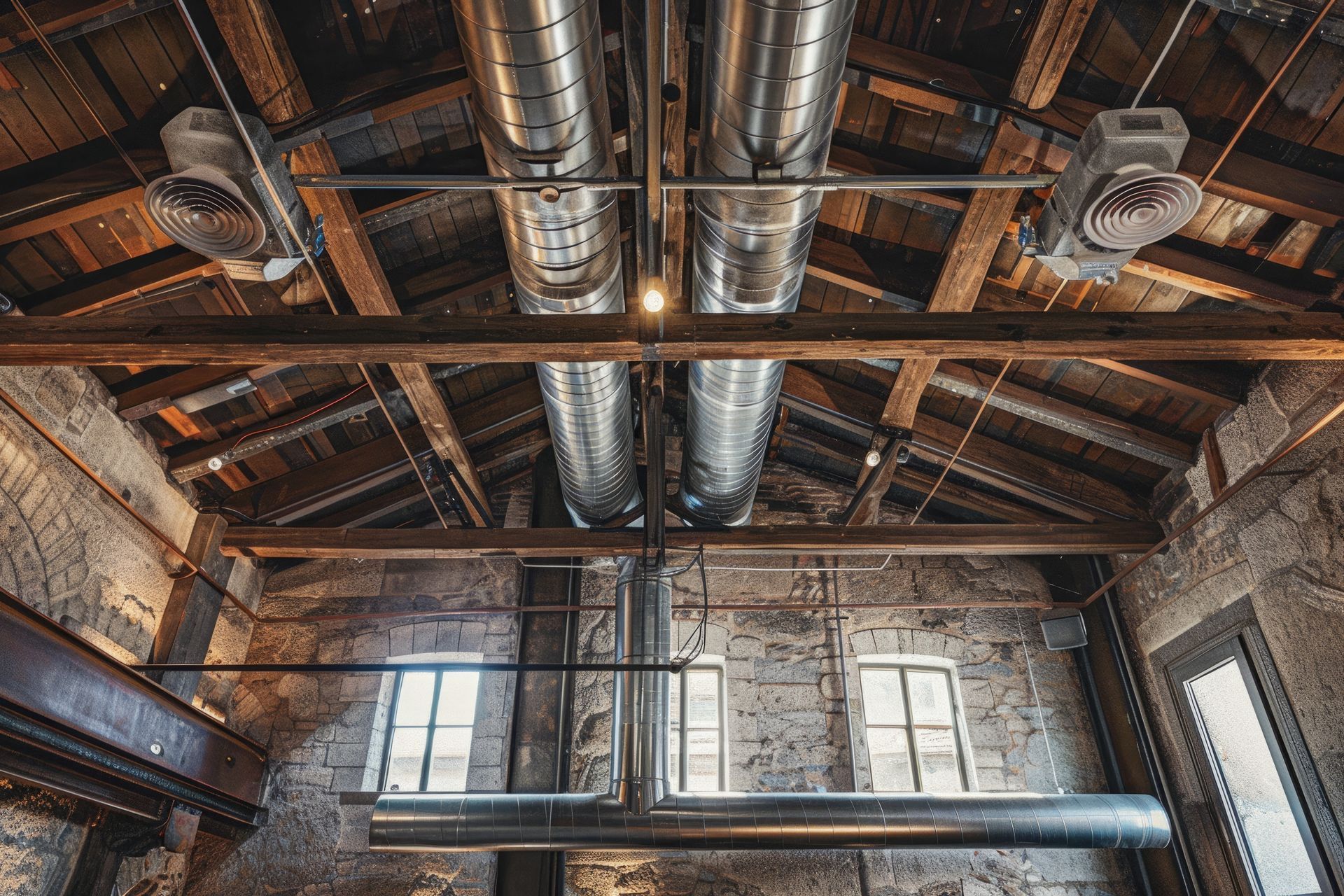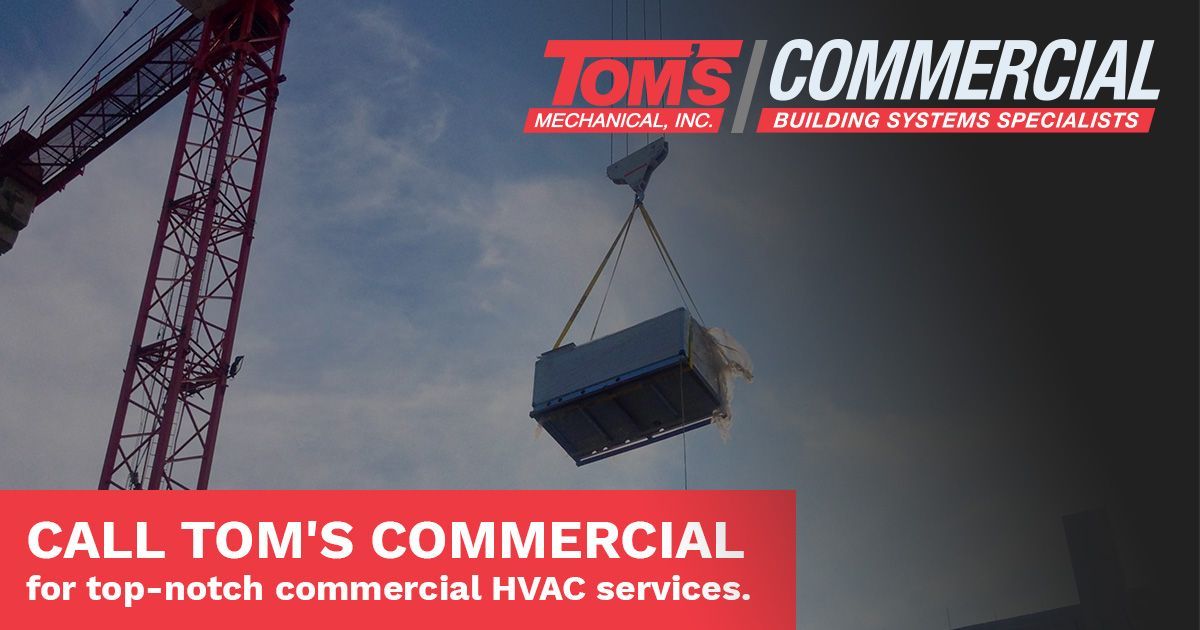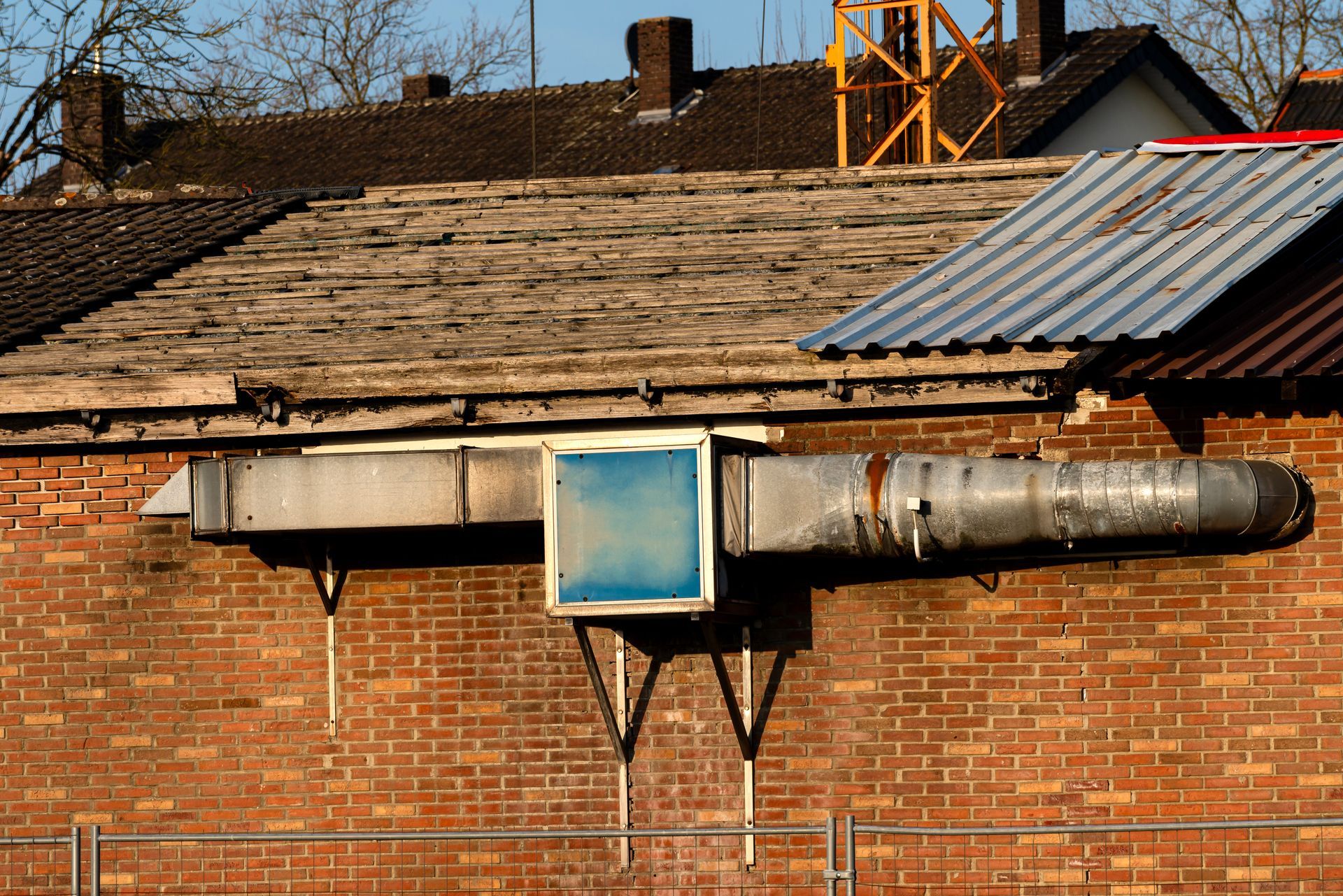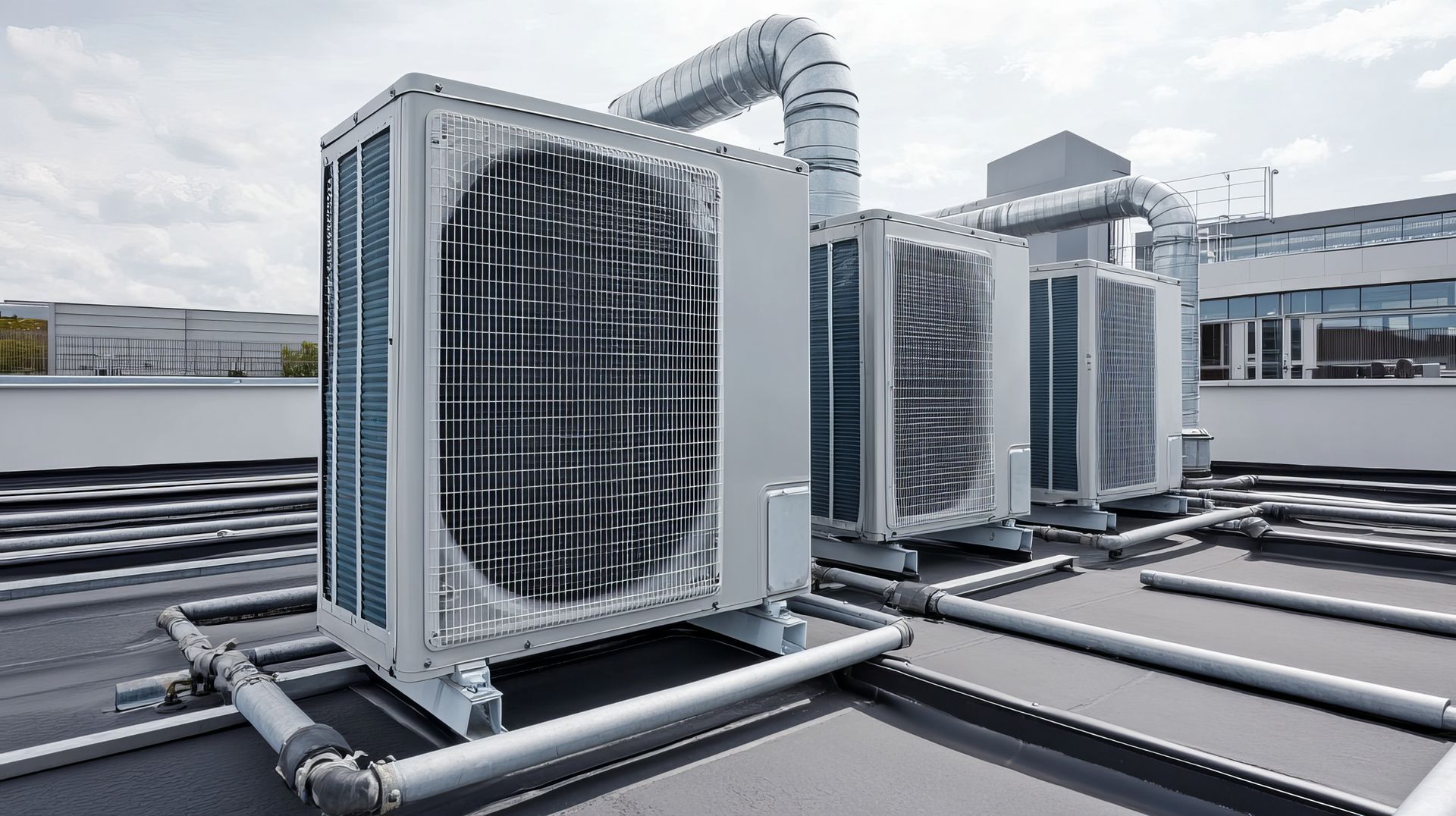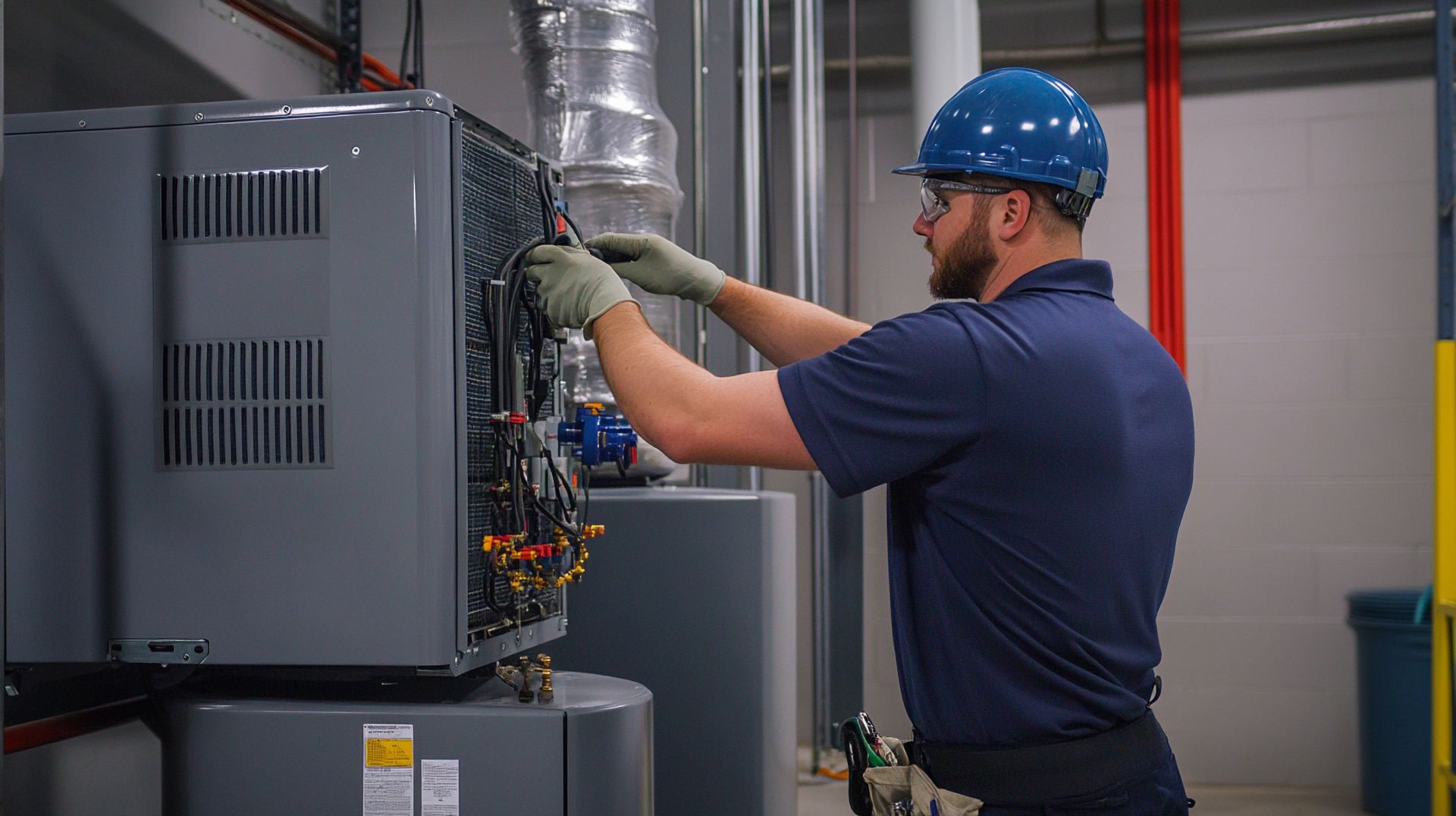Critical Commercial HVAC Maintenance for Optimal Efficiency and Maximum Uptime
Share
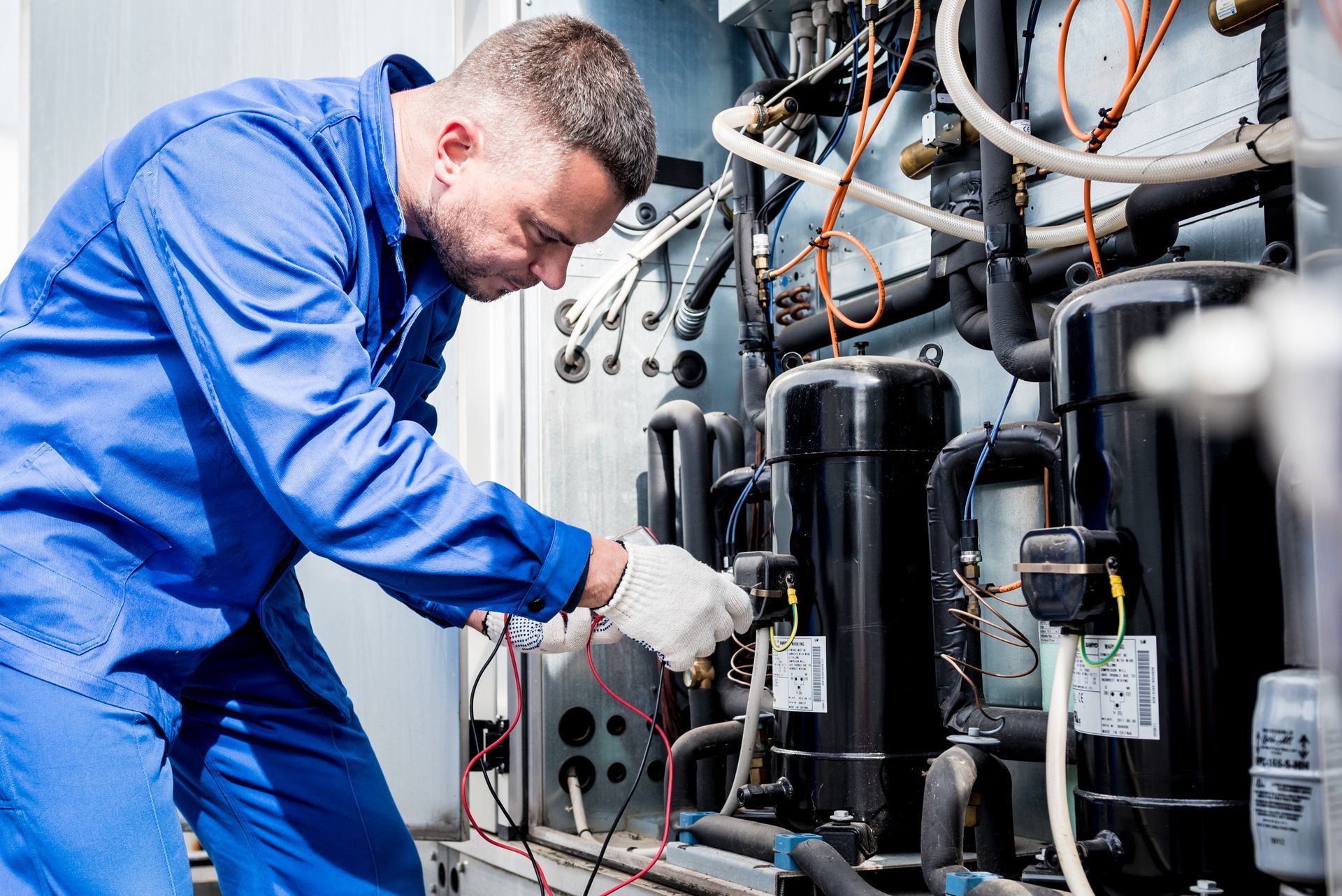
Commercial HVAC systems are vital to maintaining a comfortable and productive environment in offices, retail spaces and industrial facilities. These units are larger and more complex than residential systems, making regular maintenance essential to efficiency, longevity and optimal performance.
If neglected, commercial systems can consume excessive energy, fail prematurely or cause costly disruptions to your business.
Conduct Regular Inspections
Routine inspections are the cornerstone of a well-maintained HVAC system. Professional technicians should examine the unit at least twice a year—before the heating and cooling seasons—to identify any issues early. Inspections typically include checking for wear and tear, loose connections, unusual noises and proper system operation. Early detection of problems can save significant time and money in future repairs.
Clean or Replace Air Filters Frequently
Dirty or clogged filters force the HVAC system to work harder, leading to reduced efficiency and increased energy costs. Commercial HVAC systems often have multiple filters across different zones or components, depending on the size and configuration of the building. In these settings, where systems frequently run continuously, filters should be checked monthly and replaced or cleaned as needed. Clean filters improve airflow, maintain indoor air quality and prevent strain on the unit’s components.
Keep Coils Clean
Evaporator and condenser coils can accumulate dirt and debris over time, reducing their ability to absorb and release heat. This buildup can force the system to work harder, increasing energy consumption. A reliable maintenance company will inspect the coils during routine visits and recommend or perform cleaning as needed to ensure the system runs efficiently and effectively.
Check Thermostat Settings
Improper thermostat settings can lead to inconsistent temperatures, energy waste and unhappy employees or customers. Commercial HVAC maintenance professionals should always check your thermostats to ensure they are calibrated correctly and programmed for the building’s occupancy patterns. If you haven’t already, you may want to consider upgrading to smart or programmable thermostats for better control and energy savings.
Inspect and Seal Ductwork
Leaky or poorly insulated ducts can significantly reduce system efficiency by allowing conditioned air to escape. Ducts should be periodically inspected for gaps, cracks or loose connections. Commercial HVAC maintenance and repair technicians should be proactively sealing any duct issues in your building with high-quality duct tape or mastic. Proper insulation further enhances efficiency, particularly in areas where ductwork is exposed to extreme temperatures.
Monitor Refrigerant Levels
Low refrigerant levels can compromise your system’s cooling capacity and lead to higher energy consumption. Technicians should check refrigerant levels during routine maintenance, address any leaks and ensure the system is charged to the manufacturer’s specifications. This will optimize performance and help prevent further damage.
Lubricate Moving Parts
Commercial HVAC systems have numerous moving components, such as motors, belts and fans. Without proper lubrication, these parts can wear out prematurely or cause the system to overheat. Regular lubrication reduces friction, promotes smooth operation and extends the life of the components.
Test and Inspect Electrical Connections
Faulty electrical connections can cause system failures and pose safety risks. Technicians should inspect and tighten all connections, test voltage levels and see that the electrical components are in good working condition. This step reduces the risk of unexpected breakdowns and prolongs the system’s lifespan.
Perform Regular Drain Line Maintenance
Drain lines are responsible for removing moisture collected during the cooling process. Over time, algae, mold or debris can clog these lines, leading to water leaks and potential damage to your property.
Schedule Preventive Maintenance Contracts
One of the best ways to ensure your commercial HVAC unit stays in peak condition is by signing a preventive maintenance contract with a trusted HVAC service provider. These agreements typically include scheduled inspections, cleaning and minor repairs, providing peace of mind that your system is always in good hands.
Train Staff on Basic Maintenance
While professional services are essential for in-depth maintenance, training your on-site staff on basic tasks can also make a significant difference. For example, staff can monitor thermostat settings, report unusual noises or performance issues and ensure air filters are replaced as needed.
Upgrade Aging Components
If your commercial HVAC system is older, certain components may no longer operate efficiently. Upgrading outdated parts, such as motors, thermostats or fans, can improve performance and energy efficiency. Professional technicians can recommend cost-effective upgrades that align with your system’s design.
The Benefits of Regular Maintenance
- Reduced Energy Costs: A well-maintained system runs more efficiently, lowering monthly utility bills.
- Prolonged System Lifespan: Regular care prevents wear and tear, extending the unit’s operational life.
- Improved Indoor Air Quality: Clean filters and ducts enhance air quality, promoting a healthier workspace.
- Fewer Breakdowns: Preventive maintenance catches issues early, minimizing unexpected repairs.
- Better Comfort and Productivity: Reliable temperature control keeps employees and customers comfortable.
Trust Us for Your Commercial HVAC Maintenance in Arlington, TX
Our experienced technicians offer comprehensive maintenance services tailored to the unique needs of your business. Schedule your commercial HVAC maintenance with Tom’s Commercial Inc. today by calling us at 817-857-7400 and experience the benefits of a well-maintained system.

